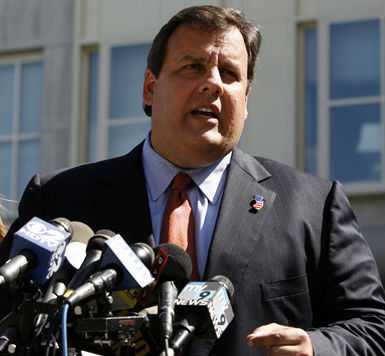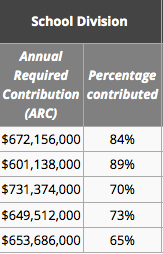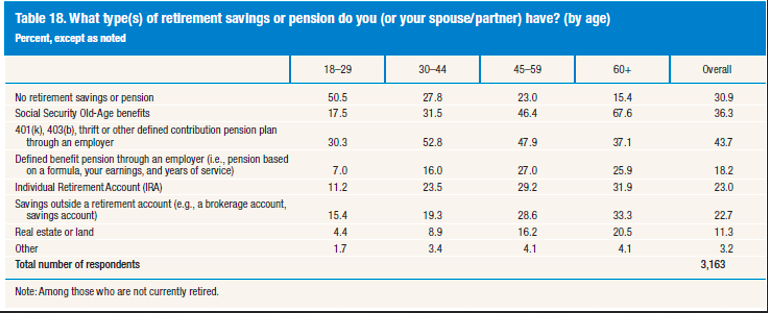
When it comes to pension reform, this isn’t New Jersey Gov. Chris Christie’s first rodeo.
Christie signed his state’s initial pension overhaul back in 2010. A major part of the law was the requirement that New Jersey slowly work its way up to paying its full actuarially required contribution into the state pension system.
But that plan never came to fruition, as Christie is using a large portion of the state’s pension contributions this year and next to fill budget shortfalls elsewhere.
Now, Christie says he’s going to give pension reform another shot. Last week, he announced plans to create a panel to analyze the state’s pension system and brainstorm ideas for cutting costs. From the NJ Star-Ledger:
The Pension and Health Benefit Study Commission will review the history of New Jersey’s public retirement system, which has been neglected by governors of both parties since 1997, who did not make required contributions whenever they ran into budgeting difficulties. Christie’s special commission will also look at reforms implemented in other states and then recommend changes to the governor.
Although Christie has been on the town-hall circuit this summer speaking of the need to reduce current contributions for public workers, those benefits in some cases are protected by the state constitution – and could be hard to claw back.
Christie, however, may be able to reduce health benefits, which are not as strongly protected as pensions under New Jersey law. He could also try to increase pension contributions for future workers, and their retirement age, as he did in 2011. Still, a Democratic-controlled Legislature is unlikely to go along with those moves.
Today, he announced the people that will populate the panel. Here’s a breakdown of who they are:
 Thomas J. Healey – Partner, Healey Development LLC
Thomas J. Healey – Partner, Healey Development LLC
Mr. Healey joined Goldman, Sachs & Co. in 1985 to create the Real Estate Capital Markets Group, and founded the Pension Services Group in 1990. He became a Partner in 1988, a Managing Director in 1996, and remains a Senior Director of Goldman Sachs. Prior to joining Goldman Sachs, Mr. Healey served as Assistant Secretary of the U.S. Treasury for Domestic Finance under President Ronald Reagan.
He is Chairman of the Rockefeller Foundation Investment Committee and is actively involved with other charitable institutions. Mr. Healey graduated from Georgetown University in 1964 and Harvard Business School in 1966.
 Tom Byrne – Founder, Byrne Asset Management:
Tom Byrne – Founder, Byrne Asset Management:
Tom founded Byrne Asset Management in 1998. He serves as the Managing Director and Head of Equity Portfolio Management and brings over 35 years experience in the securities industry to his clients.
Governor Chris Christie appointed Tom to the New Jersey State Investment Council. The Council oversees New Jersey’s public pension fund assets, currently about $73 billion. Tom also serves as a trustee and treasurer of The Fund for New Jersey and is a trustee of several other civic organizations. He also served two terms as Chairman of the Democratic State Committee in New Jersey.
Tom is a graduate of Princeton University (1976) and Fordham Law School (1981).
 Ray Chambers –Special Envoy, United Nations:
Ray Chambers –Special Envoy, United Nations:
Ray Chambers is a United Nations Special Envoy for Financing the Health Millennium Development Goals and For Malaria (United States). [He] is a philanthropist and humanitarian who has directed most of his efforts towards at-risk youth.
He is the founding Chairman of the Points of Light Foundation and co-founder, with Colin Powell, of America’s Promise — The Alliance for Youth. He also co-founded the National Mentoring Partnership and served as Chairman of The Millennium Promise Alliance.
Chambers is the founder and Co-Chairman of Malaria No More, with Peter Chernin, President of News Corporation. He is taking a leave of absence from that role to focus on his appointment as the United Nations Secretary-General’s Special Envoy for Malaria.
Leonard W. Davis – Chief Investment Officer, SCS Commodities Corp:
Mr. Davis has organized and managed private equity, technology, and natural resource companies. He has been the principal financial manager in a private equity company and has been the Chief Financial Officer to the lead investor of a natural resource company active in metals and energy.
Mr. Davis received his B.S. in Accounting from Spring Garden College and is a Certified Public Accountant.
Carl Hess – Managing Director of Americas, Towers Watson:
Carl A. Hess (age 52) has served as Managing Director, The Americas, of Towers Watson since February 1, 2014, and has also served as the Managing Director of Towers Watson’s Investment business since January 1, 2010. Prior to that, he worked in a variety of roles over 20 years at Watson Wyatt, lastly as Global Practice Director of Watson Wyatt’s Investment business. Mr. Hess is a Fellow of the Society of Actuaries and the Conference of Consulting Actuaries, and a Chartered Enterprise Risk Analyst. He has a B.A. cum laude in logic and language from Yale University.
Ethan Kra – Founder, Ethan Kra Actuarial Services LLC:
Ethan Kra is an independent actuary, specializing in litigation support/expert witness, advice on multi-employer plan exposures and strategies and the financial aspects of executive benefits. Previously, he was a Senior Partner and Chief Actuary-Retirement of Mercer, where he consulted in the areas of the design and funding of pension and group insurance benefits, structuring and funding of non-qualified pension benefits and the proper accounting for expense of employee benefits.
He specializes in analyzing the economic and accounting implications of financing strategies and vehicles for employee and executive benefits. For over 17 years, he chaired Mercer’s Actuarial Resource Network, a committee of the senior technical actuaries throughout the United States.
Ken Kunzman – Partner, Connell Foley LLP
Kenneth F. Kunzman was Chairman of the Connell Foley Executive Committee from 1995 to 2002. He has been a partner in the firm since 1968 and has been responsible for a variety of areas of law.
Additionally, Mr. Kunzman serves as Chairman and Trustee of the Corella A. and Bertram F. Bonner Foundation of Princeton, NJ which provides scholarships for needy students of 26 colleges based upon community service. He is Trustee Emeritus of Caldwell College, former Trustee of St. Peter’s Prep, and Co-Chairman Emeritus of Seton Hall University Pirate Blue Fund. Mr. Kunzman served as Captain, US Air Force from 1962-1965.
Mr. Kunzman serves as a member of the Board of Trustees and the Executive Committee of the Scholarship Fund for Inner City Children and is the former Chairman of the Essex Legal Services Foundation, where he continues to serve as a Trustee.
Larry Sher – Partner, October Three Consulting LLC
Larry Sher is a member of the actuarial consulting team and part of the senior leadership for October Three. Larry also is head of our dispute resolution practice, which provides support to clients in disputes related to their retirement plans, both in litigation and otherwise. Larry’s experience in this area is extensive, having served as an arbitrator outside of litigation and as an expert in many lawsuits, including prominent cases involving cash balance pension plans. Larry is a highly sought after expert and advisor.
Margaret Berger – Principal, Mercer Consulting
One thing is certain: the panel has no shortage of impressive resumes. But it’s ideas, not resumes, that will effectively reform New Jersey’s Pension System. Pension360 will keep you updated on subsequent developments surrounding the The Pension and Health Benefit Study Commission.















